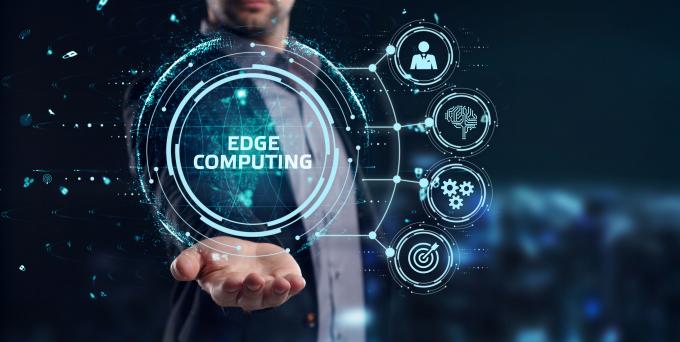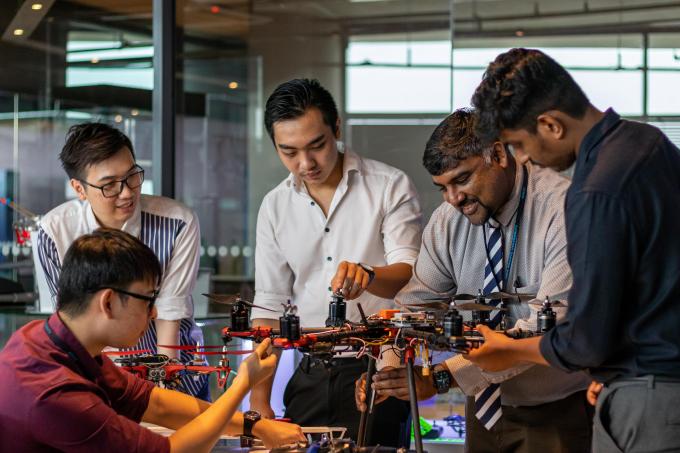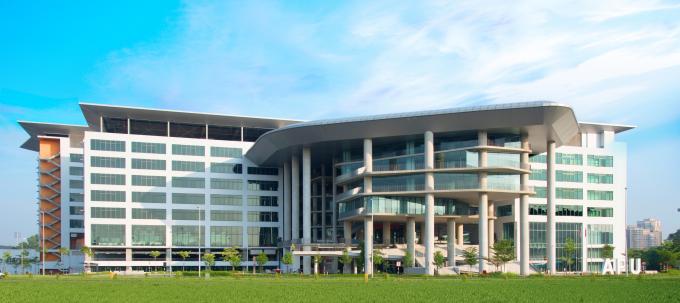
WITH the growing use of 4G and 5G networks, the demand for edge computing is expected to increase tremendously.
According to a report by ResearchAndMarkets, the global edge computing market size is anticipated to reach US$156bil (RM710bil) by 2030, with artificial intelligence (AI) integration in the edge environment expected to drive market growth.
In contrast to cloud computing, edge computing relates to fast data processing from networks and devices at or near the user, as it handles the processing workload on-site.
Rather than doing it the old fashioned way of transmitting raw data to a central data centre for processing and analysis, edge computing performs work where the data is originally generated, which cuts down latency and improves efficiency.

Edge computing with Internet of Things (IoT) devices, infused with AI algorithms, is the solution needed to address the emergence of high-volume and diverse ranges of data collected from everyday processes in the industry and by consumers.
This new form of on-site data processing is increasing in demand thanks to its ability to reduce the network burden and operation time down to mere milliseconds.
In response to this emerging trend, the School of Technology and School of Computing at Asia Pacific University of Technology & Innovation (APU) offer a diverse range of programmes in Computing and Information Technology (IT), which equips students with the critical knowledge and a solid foundation in edge computing, AI and IoT.
“APU offers specialisms in Cloud Engineering and IoT for the BSc (Hons) in Information Technology degree programme,” says APU School of Technology senior head Assoc Prof Dr Thang Ka Fei.
“These specialisms are offered to enable students to hone their expertise and skills in edge computing and IoT via the inclusion of four to five specialised modules within the curriculum.”
Thang specialises in areas of lecturing in AI, and its usage in image and signal processing.
The Information Technology with a specialism in the Internet of Things degree programme is fully-focused on IoT, while the Information Technology with a specialism in Cloud Engineering degree programme offers students a better understanding of edge computing concepts and applications.
“Students can also opt for a Bachelor of Computer Science (Hons) (Intelligent Systems) degree programme for a specialised knowledge and skills in AI,” says Thang.
“Apart from academic activities, students can participate in talks, workshops and competitions, which are often organised both internally and externally.
“Participation in such activities is a good way of equipping one’s skills in complex problem-solving scenarios, which is vital for the future.”
According to Thang, edge computing will be widely applied to a diverse range of industries in the immediate future.
It is relevant for time-critical missions where a fast response or action is needed, such as in autonomous vehicles, smart grids, traffic management, cloud-based gaming and entertainment, healthcare applications, and remote monitoring and predictive maintenance of assets.
The key advantage of edge computing is the better User Experience (UX) in terms of reliability, reduction in latency and the safeguarding of data privacy, as it is processed on-site via edge devices owned by the user and connected to the local network.
“By keeping data storage and processing locally, edge computing architecture reduces cloud infrastructure requirements, thereby conserving resources and making it more sustainable,” says Thang.
“If AI-based algorithms are embedded within the process, IoT devices are not only able to collect and exchange data via embedded sensors, but they are also able to process tonnes of information at a fast pace and with actionable outcomes.”
IT undergraduates who aim for tech careers – which need them to keep up with the latest development trends – need to be highly sensitive to new developments and innovations in the technology industry.

At APU, IT students will be well-exposed to entrepreneurial development via the offering of university-wide modules at each level.
Within these opportunities, they will be allowed to pitch their ideas in edge computing, AI and IoT to external parties.
“There are many clubs, societies or communities in the tech areas, both at APU and externally, where students are highly encouraged to take part,” adds Thang.
“Not only can they gain technical knowledge this way, but they can also network, mingle and interact with notable personnel in the tech scene, and learn from their experience and expertise.
“Students should embrace life-long learning and continuous professional development.”
You can also read this article at:
https://www.thestar.com.my/starpicks/2023/07/20/edge-computing-the-future-of-ai-and-iot?utm_medium=thestar&utm_source=wpeditorspick&utm_campaign=APU+20July23
News & Happening
Download e-Brochures
Intake Calendar
Want to know more ?
Let’s Connect